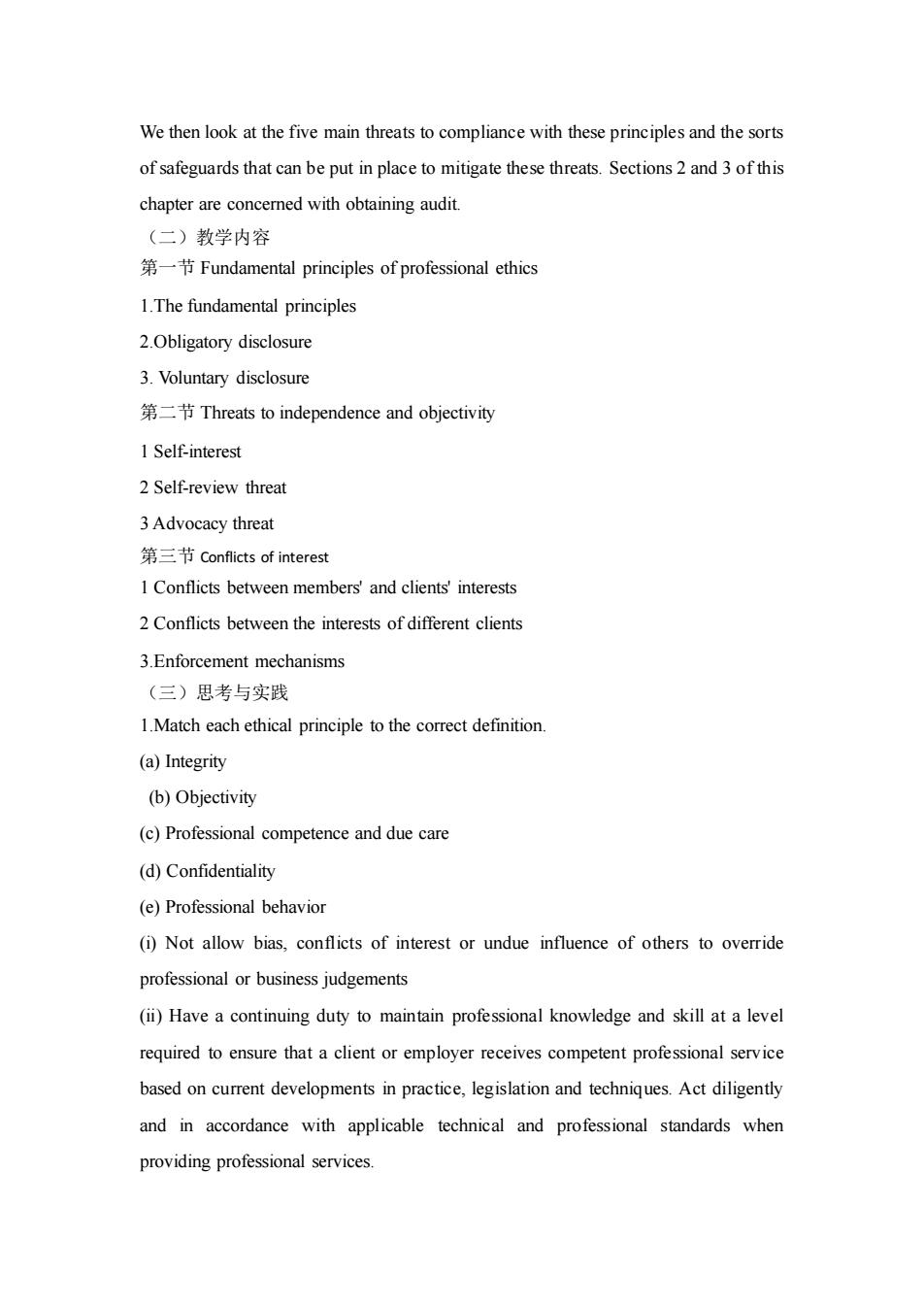正在加载图片...

We then look at the five main threats to compliance with these principles and the sorts of safeguards that can be put in place to mitigate these threats.Sections 2 and 3 of this chapter are concerned with obtaining audit. (二)教学内容 Fundamental principles of professional ethics 1.The fundamental principles 2.Obligatory disclosure 3.Voluntary disclosure 第二节Threats to independence and objectivity Self-interest 2 Self-review threat 3 Advocacy threat 第三节Conflicts of interest 1 Conflicts between members'and clients'interests 2 Conflicts between the interests of different clients 3.Enforcement mechanisms (三)思考与实践 1.Match each ethical principle to the correct definition. (a)Integrity (b)Objectivity (c)Professional competence and due care (d)Confidentiality (e)Professional behavior (i)Not allow bias,conflicts of interest or undue influence of others to override professional or business judgements (ii)Have a continuing duty to maintain professional knowledge and skill at a level required to ensure that a client or employer receives competent professional service based on current developments in practice,legislation and techniques.Act diligently and in accordance with applicable technical and professional standards when providing professional services We then look at the five main threats to compliance with these principles and the sorts of safeguards that can be put in place to mitigate these threats. Sections 2 and 3 of this chapter are concerned with obtaining audit. (二)教学内容 第一节 Fundamental principles of professional ethics 1.The fundamental principles 2.Obligatory disclosure 3. Voluntary disclosure 第二节 Threats to independence and objectivity 1 Self-interest 2 Self-review threat 3 Advocacy threat 第三节 Conflicts of interest 1 Conflicts between members' and clients' interests 2 Conflicts between the interests of different clients 3.Enforcement mechanisms (三)思考与实践 1.Match each ethical principle to the correct definition. (a) Integrity (b) Objectivity (c) Professional competence and due care (d) Confidentiality (e) Professional behavior (i) Not allow bias, conflicts of interest or undue influence of others to override professional or business judgements (ii) Have a continuing duty to maintain professional knowledge and skill at a level required to ensure that a client or employer receives competent professional service based on current developments in practice, legislation and techniques. Act diligently and in accordance with applicable technical and professional standards when providing professional services